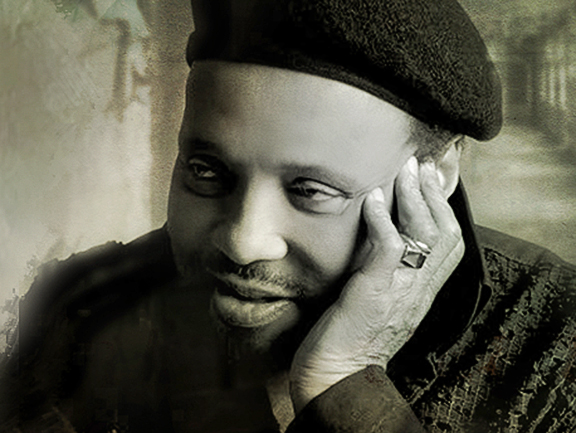Andraé Crouch, the incomparable songwriter, gospel singer and preacher, died in Los Angeles on January 9, 2015 of a heart attack. Billy Graham once said of Crouch that he was “The greatest hymn writer of our age, the modern day John Wesley.” More than any other contemporary gospel singer and songwriter, Andraé Crouch helped to integrate contemporary gospel music, and to bridge the sacred and secular worlds with a clear, simple, yet brilliant presentation of his Christian faith.
In a world full of sappy Christian music—with its dubious theology and soft pabulum—Crouch’s music is exceptional for its power.
Like many gospel singers/musicians, Crouch got his start at his father’s church with no formal training. To top it off, he was dyslexic and stuttered, which meant that he always felt lonely as a child, and at a disadvantage when making music. His first big hit, “The Blood Will Never Lose its Power” was written when he was only 14.
That’s right, 14.
At a backyard BBQ hosted by James Cleveland, and attended by Billy Preston, Crouch heard hearing Preston playing. Feeling a bit inadequate to all of the luminaries at the BBQ, Crouch asked God to give him a song, and while watching BBQ sauce being poured over ribs, heard blood splashing and had a vision of Jesus and people standing behind him. Playing some chords, he asked Billy Preston to come over and play while he sang. Later, thinking the song wasn’t good enough, he threw it in the trash, only to have his twin sister Sandra retrieve it from the trash and say, “play it again.”
The rest, as they say is history.
I relate that story because it is the genius of Andraé Crouch’s talent that flowed from his Pentecostal upbringing in the Church of God in Christ that made him the powerful songwriter and singer he was. Along with his sister Sandra, his first group, the COGICS (Church of God in Christ Singers) featured Billy Preston. He would then go on to form the group Disciples in 1965. While COGIC churches emphasized holy living and strict discipline, their cutting edge musical styles and choir presentation helped groups like the Disciples to break out into the mainstream music scene. The tension between serving God and singing for the world would put Crouch often at odds with those who felt his music was not “holy” enough. Yet it was in those long church services and constant revival meetings as a child that Crouch’s distinctive musical style and lyrics were formed. His music became a bridge in the late 1960’s and would not only cross racial lines, but form the foundation for contemporary Christian and gospel music.
Crouch was part of the Jesus music movement, and in my opinion, its most widely known and longest lasting performer. In the 1970’s, he would travel to around the world, playing at Billy Graham crusades, performing at both Carnegie hall and Royal Albert Hall. For many, it was their introduction to contemporary black gospel music. Groups like the Gaithers sang Andrae Crouch’s songs, and secular artists like Elvis Presley and Paul Simon recorded covers of his music. His choirs would back both Madonna and Michael Jackson, and his original music was featured in The Lion King and nominated for an Oscar for the Color Purple.
Yet for all of the acclaim, Crouch always came back to COGIC, pressing them forward. In 1998 Crouch would ordain his sister Sandra Crouch to pastor, defying Church of God in Christ’s rule that women could not be ordained as pastors.
I personally had the chance to meet and talk with him after attending a service a few years ago at the New Christ Memorial Church in Pacoima, California, where he and Sandra Crouch co-pastored. He was warm, cordial, and most of all, humble. It was just like hanging out with someone you had known all of your life, who did not hold over you that fact he was more famous than you could ever hope to be.
Perhaps that is why Andrae’s music has touched millions around the world: his humility and grace. Andraé’s passing is a great loss for contemporary Christian and gospel music, but his music will be with us through it all.





